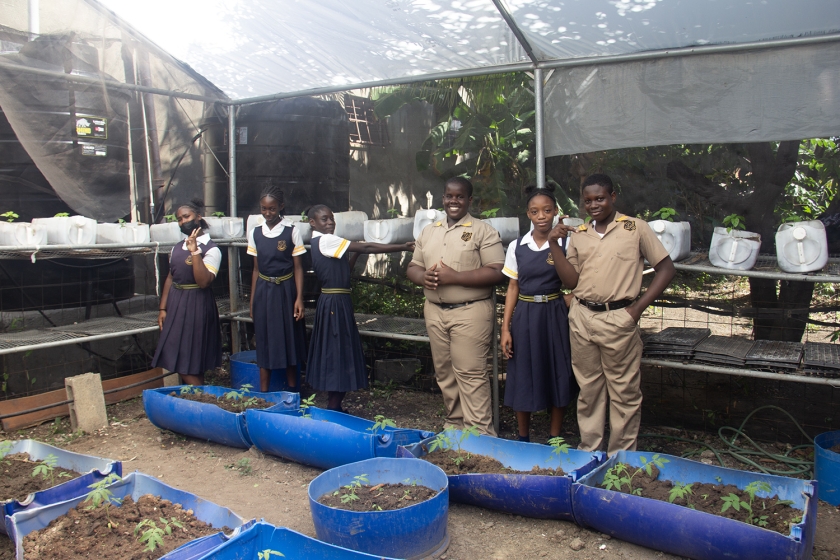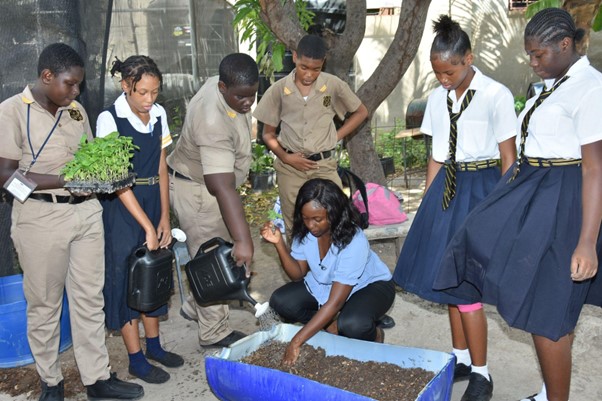Eager high school students converged on the Jamaica Pegasus Hotel in New Kingston last Wednesday to attend a novel Nature-based Solutions (NbS) advocacy conference designed to equip them with first-hand knowledge of the skills and interventions necessary to cope with changing climatic conditions in Jamaica’s urban spaces.
Facilitated by UNEP’s CityAdapt project which has been implementing a wide range of climate change mitigation and adaptation measures in Kingston and Latin American cities since 2018, the conference fulfils the project’s mandate to engage younger urban populations who will need new thinking and expertise to respond to the unique climate challenges posed by progressively warmer and more densely populated cities.
Hosted by local CityAdapt implementing partner, the Jamaica 4-H Clubs, with support from the Forestry Department, the exciting conference featured live demonstrations of rainwater harvesting and hydroponic farming systems, beekeeping and container gardening – the climate-resilient practices that not only demonstrate a scientifically grounded nature-based framework for responding to climate change, but provide economic opportunities.
“Although I knew about greenhouses, I learnt about the differences between greenhouses and shade houses. I learned about different types of irrigation systems. I learned about the benefits of rearing bees, especially the monetary aspects”, said St. Andrew Technical High School student Courtney Rodcliffe, who attended the workshop with other students and teachers from Kingston Technical, Tivoli Gardens and Camperdown High Schools, Rennock Lodge All-Age, as well as from the special needs community training institution, Abilities Foundation.
Students also participated in a lively interactive session with Forestry Department trainers who emphasised the critical role of trees and forests in reducing urban heat, improving air and water quality, supporting urban biodiversity, and increasing food security.
“As we navigate an era marked by the signs of climate change, our schools must emerge as
beacons of environmental stewardship. We are at the forefront of shaping the minds that will inherit this planet, and it is our duty to instil in them a deep appreciation for the ecosystems that sustain us”, said Jamaica 4-H Clubs Executive Director, Peter Thompson. To date, UNEP’s CityAdapt project has implemented a range of NbS pilot interventions across city schools, providing students with tangible examples of environmental concepts and promoting interdisciplinary education by allowing students to understand connections between traditional subjects such as Biology and Geography, and nature-based climate interventions.






